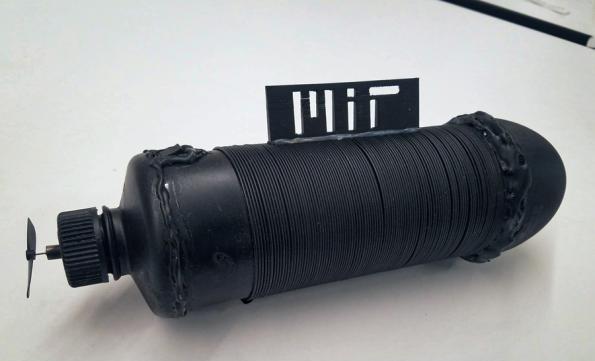Researchers at the Massachusetts Institute of Technology have developed a rechargeable lithium-ion battery in the form of fibers that can be woven into fabric.

At present, the team has 3D printed this fiber battery, with a length of 140 meters and a charge of 123 mAh. In theory, their process could produce lithium batteries up to 1,000 meters long. Although the energy storage capacity is not very prominent, the fiber battery is only a few hundred microns in diameter, which is very suitable for powering wearable devices.
Fiber batteries are manufactured using a new electrolyte gel and a standard fiber stretching system that starts with a large cylinder containing all the ingredients and then heats it to just below its melting point. The material is extruded through a narrow opening, compressing all parts to very small diameters while maintaining the original arrangement of all parts.
"The inclusion of lithium and other materials inside the fibers and a protective layer on the outside directly gives this fiber battery a stable and waterproof nature." Theoretically, there is no obvious upper limit to the length, and we can definitely achieve a kilometer-level length. Researcher Tula-Hudiev said.
"This is the first 3D printed fiber battery," Hudiev said, "after 3D printing, you don't need to go through other steps to add other materials, everything is already in the fiber." ”
At present, the research team has tested this fiber battery to power the LED and signal receiver, and the results show that the battery is running very stable.